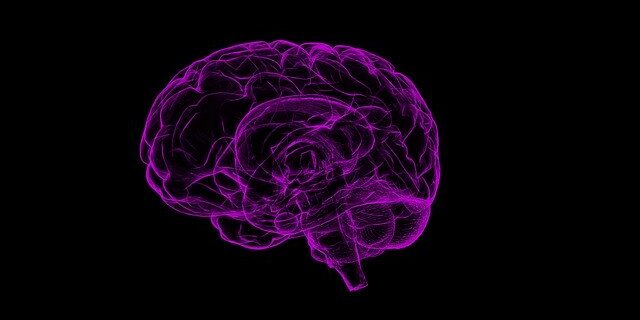Whether you are a farmer fertilizing your crops or a parent preparing dinner for your children, we know that we want to optimize nutrition for the health of any organism. This maxim should stir no controversy as we look at prevention or treatment of cognitive impairment. If we can pour millions and billions of dollars into pharmaceutical research on Alzheimer’s disease while millions and billions are spent in care of these unfortunate patients, why not look at common sense means of optimizing brain health? Functional medicine types like myself already apply such common sense to our patients, but we do appreciate new studies supporting our work and maybe moving this maxim into the mainstream.
Researchers at the neurology department of Infanta Cristina Hospital in Madrid, Spain evalauted the effects of a nutritional drink, Fortasyn Connect® in Souvenaid, on the progression of mild cognitive impairment to full dementia criteria. Several study measures were compared before and after the intervention with follow-up for 1 year later, all occurring from June 2015 to December 2016. Positive benefits were reported by caregivers, on the glucose labeled PET scans (a measure of brain synapse activity which declines with dementia), and several cognitive domains. Despite these benefits, overall progression to dementia was not slowed. In this small study of 17 test subjects (with therapy) versus 24 control subjects (no therapy), these positive findings encourage further research with hopes of also slowing the progression.
In studying dementia onset and development, practically all agree that successful prevention or early treatment are more desirable than treatment of full blown disease. Once the disease has progressed, reversal becomes difficult. However, if we can properly identify patients with the early stages and apply therapies which maintain cognitive function, patients, caregivers, and society will benefit more. As we better understand the risk factors for dementia, we can better screen for those who might benefit from early intervention. As heightened public awareness raises red flags for family members and the medical community, we can begin implementing both screening and therapy at the individual and the community levels.
Risk factors include the obvious fact of aging, but also depression, low education levels, obesity, hypertension, high cholesterol, and metabolic syndrome including diabetes (Hyman, Aging, Drachman, Castello, Castello). Many non-pharmaceutical interventions have been evaluated. Diet and nutrition arise as modifiable risk factor with potential for significant impact. Research by the LipiDiDiet consortium contributed to the development of this study’s medical food. The active component, Fortasyn Connect®, in Sovenaid (the medical food for this study) combined the Omega 3 oils, DHA and EPA, with urindine monophosphate, B vitamins (B12, B6, Folic acid), Vitamins C and E, choline, selenium, and other phospholipids. Each of these nutrients had been found to play roles in metabolic pathways important for neurologic anatomy and function. Animal models had found this combination to improve phospholipid synthesis, to increase nerve connections, synapses, in mice hippocampus (brain area involved in memory), and reduced amyloid plaque effects on animal brains. Prior human studies had shown positive findings in early or mild cognitive decline but no with more advanced disease.
While this particular medical food needs more testing and likely some tweaking in its formula, we can imply the important of nutrition for preserving cognitive health as we age. In a world where good nutrition requires some effort, a simple drink like this swallowed daily may save millions over time, I must wonder what outcomes we would see if this were combined with a low-inflammatory diet and/or detoxification program. Avoiding processed foods, eating more organic, and limiting sugar would potentially multiple the effects of a medical food containing basic vitamins and minerals. At Sanctuary we are not waiting for further studies to confirm what numerous prior studies already imply (and we already see bear fruit). What we put into our bodies, whether that be good nutrition or bad toxins, affects whether or not we get to enjoy healthier, more abundant lives.
Primary Referenced Article:
Maria Sagrario Manzano Palomo, Belen Anaya Caravaca, Maria Angeles Balsa Bretón, Sergio Muñiz Castrillo, Asuncion de la Morena Vicente, Eduardo Castro Arce, María Teresa Alves Prez. Mild Cognitive Impairment with a High Risk of Progression to Alzheimer’s Disease Dementia (MCI-HR-AD): Effect of Souvenaid® Treatment on Cognition and 18F-FDG PET Scans. Journal of Alzheimer’s Disease Reports, 2019; 3 (1): 95 DOI: 10.3233/ADR-190109
Other cited references:
Hyman B, Phelps C, Beach T, Bigio E, Cairns N, Carrillo M, Dickson D, C, Frosch M, Masliah E, Mirra S, Nelson P, Schneider J, Thal D, Thies B,Trojanowski J, H, and Montine T (2012) National Institute on Aging—Alzheimer’s Association guidelines for the neuropathologic assessment of Alzheimer’s disease. Alzheimers Dement 8, 1–13.
Castello MA, Soriano S (2013) Rational heterodoxy: Cholesterol reformation of the amyloid doctrine. Ageing Res Rev 12, 282–288.
Castello MA, Soriano S (2014) On the origin of Alzheimer’s disease. Trials and tribulations of the amyloid hypothesis. Ageing Res Rev 13, 10–12.
Drachman DA (2014) The amyloid hypothesis, time to move on: Amyloid is the downstream result, not cause, of Alzheimer’s disease. Alzheimers Dement 10, 372–380.
van Gelder BM, Tijhuis M, Kalmijn S, Kromhout D (2007) Fish consumption, n-3 fatty acids, and subsequent 5-y cognitive decline in elderly men: The Zutphen Elderly Study. Am J Clin Nutr 85, 1142–1147.
Thanks to Science Daily:
IOS Press. “Specific multinutrient combination benefits patients with early stage Alzheimer’s disease.” ScienceDaily. ScienceDaily, 12 June 2019. <www.sciencedaily.com/releases/2019/06/190612110125.htm>.
Sanctuary Functional Medicine, under the direction of Dr Eric Potter, IFMCP MD, provides functional medicine services to Nashville, Middle Tennessee and beyond. We frequently treat patients from Kentucky, Alabama, Mississippi, Georgia, Ohio, Indiana, and more... offering the hope of healthier more abundant lives to those with chronic illness.







